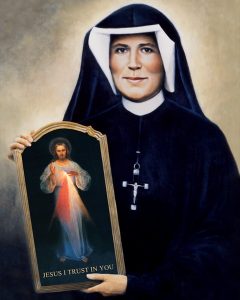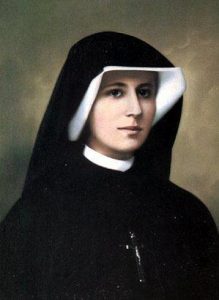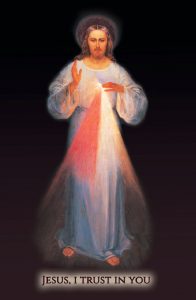
Sister Faustina Kowalska (now St. Faustina), born Helena Kowalska, was a Polish nun whose profound experiences and visions of Jesus Christ as the Divine Mercy led to the birth of the Divine Mercy devotion. Join us for a journey through her writings and experiences.
Sister Faustina’s life was marked by humility, obedience, and spiritual depth, and her writings continue to inspire millions of Catholics worldwide. This article delves into the life history of Sister Faustina, the miracles she experienced, and her writings, highlighting the most important quotes that encapsulate her spiritual journey.
The Life of Sister Faustina Kowalska
Born on August 25, 1905, in Glogowiec, Poland, Helena Kowalska was the third of ten children in a devout Catholic family. From a young age, Helena felt a calling to religious life, but her parents opposed this path. At the age of 19, she experienced a vision of Jesus calling her to enter a convent. She eventually joined the Congregation of the Sisters of Our Lady of Mercy in Warsaw in 1925 and took the name Sister Maria Faustina of the Most Blessed Sacrament.
Throughout her religious life, Sister Faustina faced numerous health challenges, including tuberculosis and a severe lung infection. Despite her physical suffering, she persevered in her spiritual journey and faithfully carried out her duties as a nun.
The Miracles and Visions of Sister Faustina
Sister Faustina began having visions of Jesus Christ in 1931. These experiences marked the beginning of the Divine Mercy devotion. Over the years, she recorded her visions, messages, and instructions from Jesus in her diary, which has since been published as “Divine Mercy in My Soul: Diary of Saint Maria Faustina Kowalska.”
One of the most significant miracles that Sister Faustina experienced was the appearance of Jesus as the Divine Mercy. Jesus instructed her to commission an image of Him with the words “Jesus, I trust in You” inscribed below. He also asked her to establish a Feast of Mercy on the first Sunday after Easter, now known as Divine Mercy Sunday.
In her diary, Sister Faustina documented numerous other mystical experiences, including conversations with the Blessed Virgin Mary, saints, and angels. She also described her mystical union with Jesus, known as the “mystical marriage,” which symbolizes the depth of her spiritual connection with Christ.
Sister Faustina’s Writings
Sister Faustina’s diary, which spans over 600 pages, offers deep spiritual insight and wisdom. Some of the most important quotes from her writings include:
- “Mankind will not have peace until it turns with trust to My mercy.” (Diary, 300)
- “The greater the sinner, the greater the right he has to My mercy.” (Diary, 723)
- “Let the weak, sinful soul have no fear to approach Me, for even if it had more sins than there are grains of sand in the world, all would be drowned in the unmeasurable depths of My mercy.” (Diary, 1059)
- “I desire that the Feast of Mercy be a refuge and shelter for all souls, and especially for poor sinners.” (Diary, 699)
- “If a soul does not exercise mercy somehow or other, it will not obtain My mercy on the day of judgment.” (Diary, 1317)
Sister Faustina Kowalska’s life, marked by suffering, humility, and spiritual depth, has left a profound impact on the Catholic Church and the lives of countless believers around the world.
Learn more about the global impact of the Divine Mercy devotion
Article: Miraculous Origins of Divine Mercy
Article: St. John Paul II and Divine Mercy
Article: Behind the Divine Mercy image
Shop for Divine Mercy devotional items at CatholicShop.com
And much more!
SHOP NOW







